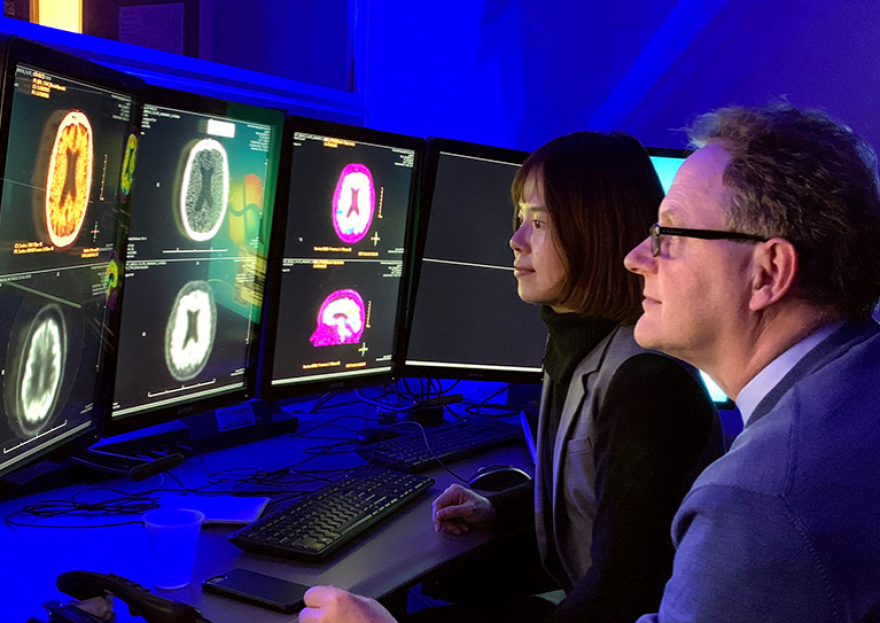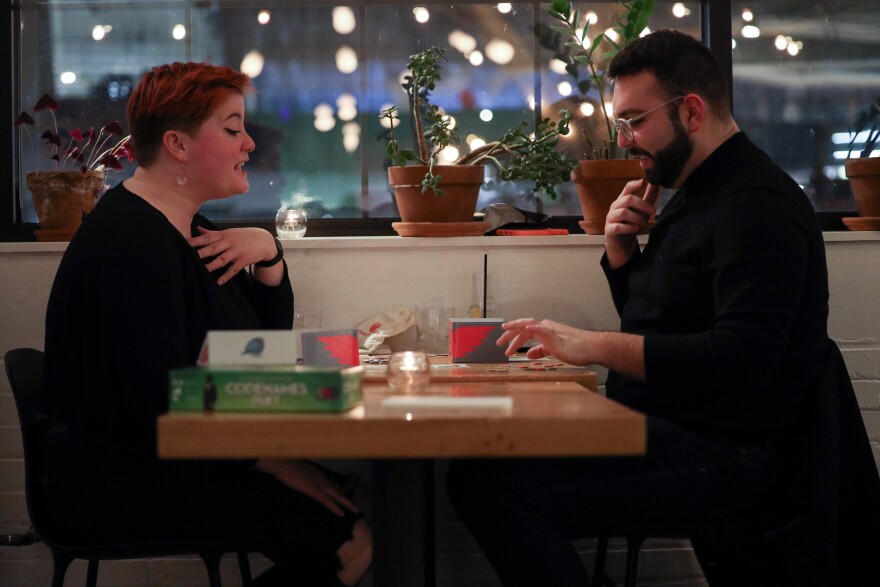On a Wednesday night in Rochester just before a snowstorm, Bruce Blue and his family of five are gathered at the bowling alley at Radio Social.
“It's really fun,” said 9-year-old Imani. “I like when I put down a lot of pins.”
“I enjoy family time,” her twin sister, Naomi, added.
For Blue, moments like these are precious, and something that he and his wife intentionally carve out time for in their busy schedules now that recreational centers are back in business.
“It relieves stress for that, you know, for that particular moment,” Blue said. “It might not eliminate your stress, but just in that moment, you have fun playing, seeing your kids smile. Seeing my family smile for me is enough.”
But playing games isn't just for kids. It's not even just for humans. Reptiles, mollusks, other mammals and even insects have been found playing.
“The impulse to play is so strong that it's been considered by scientists to be a biological drive,” said Jeremy Saucier, editor of the American Journal of Play. “So there's a certain universalness to play. And that drive’s particularly important for children and their developing brain. But it's also important for adults as well.”
The stress relief that Blue mentioned? It goes deep.
“We know that stress is neurotoxic, it increases certain compounds in the brain that basically can cause accelerated nerve cell death,” said Dr. Anton Porsteinsson, a geriatric neuro psychiatrist who studies Alzheimer's disease at the University of Rochester.

It isn’t a magical cure-all, but cognitive stimulation like playing and laughter can lower the level of the stress hormone cortisol in the body.
Laughter can also relax muscles, increase your intake of oxygen-rich air, and increase endorphins, according to the Mayo Clinic, and there’s evidence that humans have organized game-time for millennia.
One of the oldest known board games is the Royal Game of Ur. According to the British Museum, it dates back to around 4,600 years ago in Mesopotamia.
Back at Radio Social, that age-old tradition continues.
A wide array of board games is on display. At tables around the room, people are playing their game of choice, be it competitive or cooperative.
“There's so many different emotions that can happen through any type of game, but they're all good,” said Jacob Cornfield, the brains behind this new pop-up called Game Night Rochester. “I'd say even when you are playing a game that's frustrating, you are still having fun.”

For Gianluca D’Elia, one emotion that gets stirred up is nostalgia.
“One of the games that they had out today on the board was Telestrations, and that's some of my fondest family memories right there. And definitely some of the deepest belly laughs I've had,” D’Elia said.
The game is a little difficult to explain, but it involves doodling and interpretation, similar to the children’s game of telephone. There are often comical surprises, D’Elia said.
“You start out with one word and it turns totally into something else,” he said with a chuckle. “And somebody's like, OK, like, this started out as like, kickball. And then somebody guesses like, ‘Oh, I think this looks like a sea urchin.’ It's just fun.”
Play can take on many forms. It can be used as a therapy for young children to process difficult experiences and emotions. Porsteinsson said it can also show up in playing a sport, a musical instrument, dancing, or learning a new creative skill. No matter at what age.
For Bruce Blue, it’s a way of being.
“I don't think there's an age limit on having fun. Not me personally,” he said. “Others may think things are childish, but not me. I'll have fun to the day I drop.”



